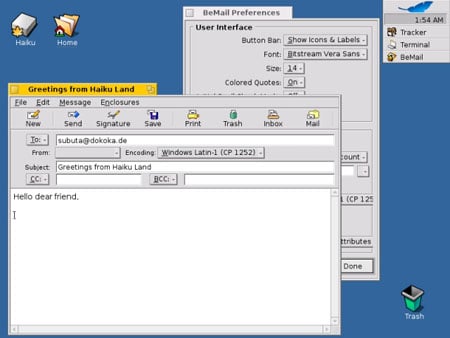This article is more than 1 year old
The Linux Chronicles, Part 1
From dot com Linux mania to something that actually works
Last Autumn I volunteered to review Windows 7. But in the following weeks, I found Linux to be preferable in many ways. This is pretty significant progress, and outside the 'community' has gone largely unnoticed, too - I haven't seen all that many Ubuntu stories in the Wall Street Journal. But what comes next is going to be pretty challenging for everyone involved – and that's what I'll look at here.
But first a bit of history, starting with a confession.
About ten years ago at around the peak of the dot.com bubble, I looked at the rate of progress that Linux had made, which was phenomenal, and decided that it was only a matter of time before every PC ran Linux. Now stop laughing there at the back, because it didn't seem quite so bonkers at the time.
If Linux was everywhere, I figured, and it soon would be, then systems vendors would need to compete by adding value higher up the stack. Apple already appeared to have made this calculation; Steve Jobs had interviewed Linus Torvalds a couple of years earlier, and why would he do that if he didn't want to swap out BSD for Linux, with its army of device driver authors?
At the time, too, Microsoft appeared to be embroiled in a fatal antitrust lawsuit, and one of the most likely remedies floating around was to hand control of Windows development to a consortium of vendors. That would surely seal its fate, because committees of vendors never do anything worthwhile, and would eventually lose interest. (In the end, this was touted as a remedy early in 2002, but nobody was interested in maintaining the hairball, quite wisely).
I'd spent a very happy year with BeOS as my primary OS, as it seemed to fulfil my primary requirement – that a computer is just a piece of crap that gets between you and what you want to do. For most people it's music (making or finding or playing), photos (viewing and printing) and reading the papers, the papers now coming in an amazing global variety of sources. If I noticed the computer getting between me and the task in hand, it was an annoyance. An OS had to be a very discreet tool indeed.

BeOS. (Actually, it's open source clone Haiku)
With its insane emphasis on performance, and all the UI you would ever need (ie minimal), BeOS had been a super choice. The only two things BeOS didn't do was view PowerPoint presentations from PR people and text retrieval. But that was a problem for PR people, who got a polite message requesting a PDF version. And as for find-by-content, I figured I would sit tight – something like Magellan or dtSearch would come along. [#]
But BeOS appeared to have succumbed to the Linux juggernaut, reckoning there was no future in operating systems. No matter, everywhere you looked, somebody was doing something to fix Linux's flaws. A real-time, SMP Linux would surely be good enough for BeOS fans. If the quality of the installation had gone from Yggdrasil peek and poke, to Caldera's slick graphical screens in a couple of years – well, wouldn't all the confusion over competing Desktops be sorted out?
At the same time I had a vague sense of unease, that something wasn't quite right with this picture.
